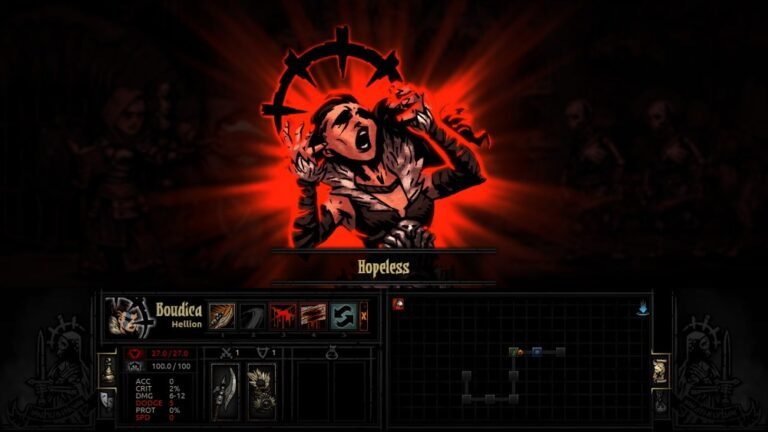[ad_1]
Each year at the Game Developers Conference, developers are invited to give five-minute microtalks during the annual Indie Soapbox event. This year’s session featured ten speakers and topics including the importance of diversity, striving for ethical design, and the value of setting deadlines without overworking yourself.
The Soapbox session is typically a “no holds barred” string of enthusiasm, venting, and irreverence. This year’s event was no different, with Hidetaka “Swery” Suehiro extolling the virtues of drinking with friends (no matter your beverage of choice).
Through the humor, the themes emerging were earnest. They speak volumes about what developers are focused on when considering the impact of their work and the messaging in the industry.
“It honestly feels like no one could be bothered to market to me,” says Indie Megabooth founder Kelly Wallick. “Why am I invisible? Why am I treated like a statistical anomaly? I have money. I like video games. I am desperate for content that speaks to me. Why is the mainstream gaming audience treated like it’s totally homogenous? Of course, you’re going to end up with the same audiences if you’re only making the same content over and over. It becomes a self-perpetuating cycle, and it’s leaving a whole pile of folks out of the picture.”
Wallick says that the design of storefronts like Steam and Origin are off-putting. She points to the constant need to update games (and therefore plan hours in advance to play) and the challenge of navigating stores to locate content.
She also urges those in the industry in the position to fund projects see the potential in the broadest market feeling welcome playing games. In order for those audiences to come, feel safe, and stay, representation is key.
“Hire people of color,” Wallick says. “Hire people who have these lived experiences to write their own characters. Start giving money to a diverse set of creators to make these games. We will all make more money. It’s stupid business sense to do otherwise. The amount of effort we’re putting into keeping people out is a waste of effort.”
As part of ensuring that the game industry is a safe and welcoming environment, developers also need to be aware of how design decisions can exploit compulsive or addictive behaviors. In her talk on development ethics, Etsy senior product designer and independent game developer Catt Small discussed how to make intentional choices about playing into the attention economy. This treats human attention as a scarce commodity.
Small points out that games have become more reliant on drawing people into time-consuming or financially exploitative loops. “In games, we are guilty of participating in this economy,” she explains. “We want attention, we want money because we need to survive. This actually harms people.”
This typically leads to whales spending big money, often on free-to-play or microtransaction monetized games. Small warns that the temptation to hook players either through extended play time or additional payments can lead down an unethical path.
“Participating in the attention economy without ethical standards often leads to designers using dark patterns,” she explains. “This is a common phrase in the design industry to talk about patterns that are designed to trick users into things they don’t consent to actually doing.”
Examples of dark UX/UI patterns include confirmation and cancel buttons that keep switching location when trying to unsubscribe from a mailing list, dialog boxes that won’t allow users to decline and keep popping back up until you accept, and hidden fine print about auto-renewal fees. In order to avoid temptation, Small suggests developers set guidelines for themselves up front, define success and metrics that make sense for the project, breaking free of design that creates addiction-like patterns and ultimately putting respect for the player first in design.
The final talk of the session, from “Darkest Dungeon” developer Chris Bourassa, was a “Star Wars” themed exploration of the importance of setting deadlines. In the game industry, deadlines are typically associated with crunch, as studios work excessive hours in order to meet milestones and ship on time.
While Bourassa is emphatic that crunch is harmful, he stresses the importance of setting deadlines for a project. He referenced his time at a “large, North American developer that also makes consoles” and how a team spent months unable to come to decisions about design elements for a prototype. According to Bourassa, the project was ultimately canceled, in part because the team couldn’t impose deadlines on itself.
“We’ve framed stress and anxiety as purely destructive things and I’m not convinced that is correct,” he says. “I think that comfort as a pursuit purely for its own sake in our North American culture has become a focus for us. As biological entities, we’re not designed to be constantly comfortable. It makes us slow.”
Bourassa suggests that deadlines are important motivators for developers because they create action. He cautions about abusing the power of deadlines, though.
“A bit of stress, a bit of discomfort is important for creative people because there is power in there,” Bourassa says. “It alerts us. It excites our senses. It creates discomfort that leads to decisive action. Sometimes it’s important to be put to a decision because that generates momentum.”
There is a fine line between deadlines that motivate and those that can cause lasting harm. He cautions that the death march of crunch can have lasting damage on developers and projects. Finding the balance is key.
“If we’re never stressed, we’re never mobilized,” Bourassa advises. “Pushing people forward, creating responsible, ethical limitations, within rich creative work can take place, is how we’re going to get the best out of ourselves and our teams.”
[ad_2]
Source link


